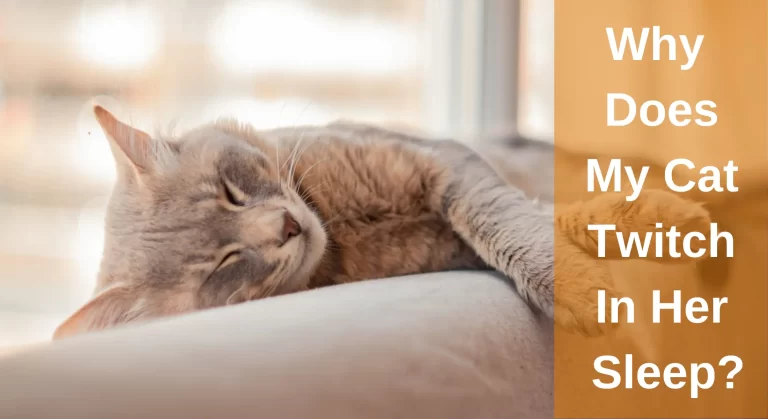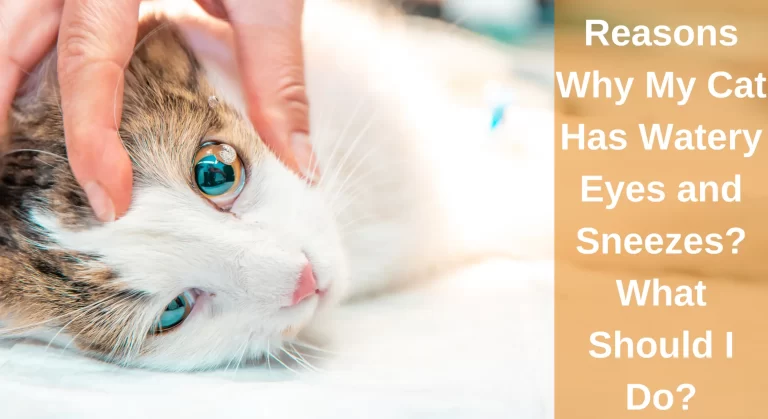Why Is My Cat Peeing on the Bed or Couch? And How To Stop
Cats are beloved by us for a variety of reasons. But if your cat pees on your bed or couch while you’re asleep, is one of the most annoying experiences a cat owner can have. A cat that defecates on a couch or bed isn’t trying to hurt you and isn’t purposefully misbehaving.
If your cat is consistently peeing on your bed or couch, it’s essential to understand the reasons behind it and take the necessary steps to resolve the issue. Why is my cat peeing on the bed or couch?
Cats who pee on couches can have several reasons for doing so, all of which need immediate attention. It could be a medical issue such as bladder stones or an infection of the bladder, which are highly inflammatory. A cat might be suffering from stress and anxiety, which can affect the chemical balance in your cat’s body, affecting several hormones and chemical functions.
In this article, we will explore the various medical and behavioral reasons why your cat may be exhibiting this behavior, as well as solutions and prevention techniques to help both you and your cat live a happy and stress-free life together.

Reasons Your Cat Peeing on the Couch or Bed
1. Medical Problem
Cats may refuse to use litter boxes due to underlying health issues. One of the first things to consider if your cat starts to urinate on your bed or sofa is the possibility that your cat may have a medical problem, such as urinary tract infections, hormone imbalances, diabetes, arthritis, or other disorders.
Even if this has never been an issue, having your cat checked out by a veterinarian as soon as possible is crucial if it starts eliminating on your bed.
Also Read: Why Is My Cat Keeps Pooping On The Carpet or Floor? How To Stop
1.1 Bladder Stones
Bladder stones can cause cats to experience pain and discomfort when urinating, leading them to avoid using their litter box. There are several signs of bladder stones, including frequent urination, straining to urinate, and blood in the urine. If you suspect your cat has bladder stones, take them to the vet for treatment.
1.2 Kidney Problems
Urinating outside the litter box can also be caused by kidney problems. Symptoms of kidney problems include increased thirst, weight loss, and a decrease in appetite. You should take your cat to the vet immediately if you suspect they are suffering from kidney disease.
2. Litter Box Issues
The majority of cats are good at and like using their litter box. Cat litter makes it possible for cats to bury their waste, which is a habit they have by nature. Additionally, they like having a private, peaceful, disturbance-free area where they may discharge themselves.
Therefore, you should first inspect the cat’s litter box if they are urinating on your couch. It has a strong chance of having an issue. You can be missing a number of little nuances because of how particular cats can be. For illustration:
Do you own multiple cats? There are how many litter boxes? If so, you must prevent your cats from using the same litter box! Each of them ought to have one, ideally with an extra. For instance, a person needs four litter boxes if they have three cats.
2.1. Type of Litter box
Litter trays come in a wide variety of shapes and sizes, including low-sided models, hooded litter boxes with covers, and top-entry models. Make sure the kind you use is suitable for your cat. For example, senior citizens prefer roomy, low-entry designs, whereas high-spraying cats prefer covered litter boxes.
2.2. Dimensions of the Litter box
Generally speaking, the litter box for your cat should be around 1.5 times as long as its body. As a result, they ought to have enough space to move about while taking care of their business without feeling crowded or uncomfortable.
2.3. Ease of Entry
If it is difficult for your cat to access and exit the litter box, they won’t use it. For this reason, senior cats and kittens are the greatest candidates for better entry designs. However, use caution when buying a top-entry litter box for a large or overweight breed.
2.4. Placement of Litter box
The best location for a litter box is one that is quiet, secluded, and conveniently accessible. The optimum location for this should be secluded from your cat’s water and food bowls.
2.5. Different Types of Cat Poop
Kitty litter comes in a variety of ways. Clay is the most common form of litter, although some cats could avoid it due to the substantial dust and overpowering scent. Use kitty litter that is as scent- and dust-free as possible.
3. Separation Anxiety
According to vets, a cat peeing on the bed or sofa can be experiencing separation anxiety. Sensitivity kitties may get worried when their favourite person is gone for a long time. They could also respond by peeing on the bed or sofa upholstery with a strong human odour.
So, ask someone to visit your cat at least twice a day or to spend the night with it. While there, they should play with your cat and do activities he enjoys.
4. Relationship Issues
Cats that are having relationship problems may frequently begin peeing on sofas or beds. This is more especially about interactions with other cats in the house or neighbourhood.
Cats are infamous for being extremely territorial. They must be organised according to status. They may mark certain locations repeatedly if they think another cat is attempting to invade them.
They could do this to claim your bed as their own, which would explain why they might urinate on your sofa or bed. This frequently happens when you introduce a new cat or dog into your home.
5. Stress Due to Routine Changes
Major alterations to their daily routine can have an adverse effect on your cat’s well-being. Because of their habitual nature, they may experience stress or anxiety from sudden changes.
Even minor modifications that may seem insignificant to us, such as introducing a new plant, a new pet, or moving to a new house, can be distressing for our beloved pets and trigger unwanted behaviors.
As a result of the stress they experience, your feline companion may start urinating outside of the litter box. This is an indication of their discomfort and should be addressed promptly. Your cat will feel more comfortable if you follow a consistent routine
6. Territorial Marking
Cats may also pee on your bed or couch as a way to mark their territory. Unneutered male cats are more likely to display this behavior, but female cats can also do it. Neutering your cat can help reduce territorial marking behavior.
7. An Elevated Posture Makes a Cat Feel Safer
Cats sometimes urinate in high places because they enjoy being elevated. Your bed or sofa is the kind of raised surface they seek. What do beds, couches, and chairs have in common with countertops?
They have amazing views, and the surfaces are higher than the ground! In other words, this is how they would behave in the wild. Wild cats will also hunt by climbing to higher altitudes in search of prey. A cat instinctively feels more secure while standing tall.
Check Out: Can Cat Wear Diapers? Cat Diapers 101
How To Stop a Cat From Peeing on a Couch or Bed?
When a cat pees on your bed or couch, there are a number of things you can do to prevent it.

1. Select a Larger Litter box
Many of us give our cats the wrong-sized litter box. One telling symptom is that if you find your cat doing potty outside the litter box, they could decide to go to other places, like your couch! Choosing a big or size-appropriate litter box may help to encourage them to use it.
Also, Check Out: How to Get Cat Pee Out of a Couch?
2. Additional Litter Box Requirements to Go Over
Is using the litter box for your cat easy? Does your home have enough litter boxes, so each cat has at least one of them? Do they like the litter your cat uses? If you choose “No” to any of these questions, you ought to think twice before making your choice.
3. Keep Your Litter box Clean
Cats prefer to keep themselves organized, and many may forget to use their litter box if it’s too dirty. Then they’ll look for another place to relieve themselves, which can be your couch! To keep the litter fresh, be sure to sweep away any waste each day and change it once a week.
4. A Protector Could be a Preferable Choice
If your cat urinates on your couch despite using all the methods, you may use a protector. These could cover the area where your cat keeps peeing, or they might cover the whole thing. They successfully prevent your cat from ruining your leather furniture, killing two birds with one stone.
5. Neutering Your Cat
If your cat is purposefully spraying urine on your sofa to mark its territory, you could consider neutering it if you haven’t already. Cats frequently communicate their desire for a partner by spraying, which is closely tied to mating. If your cat has been neutered, this practice ought to disappear.
6. Pheromone Diffuser Usage
Pheromone diffusers are sold online or in nearby pet stores. They emit cat pheromones, calming your cat’s anxiety and agitation. If your cat is happy, it’ll be less likely to urinate on your couch.
7. Make Use of a Physical Barrier
If everything else fails, you might want to think about putting a physical barrier, like double-sided tape or foil, on the floor close to your sofa. They hate the feel of this on their paws; therefore, they should keep away from your sofa.
8. Lessen Stress Level
Another common cause of couch urination is stress. You can make your house as stress-free and cat-friendly as possible by providing your cat with several elevated and enclosed hiding places.
It will also help to have a consistent routine and introduce any changes gradually. The environment you create for your cat can greatly impact their happiness and relaxation.
9. Consistency and Routine
Maintaining a consistent routine for your cat can help reduce stress and prevent peeing outside of the litter box. Stick to a regular feeding, playtime, and sleeping schedule to help your cat feel more comfortable and secure.
Interesting Reading: My Cat Is Eating And Drinking But Not Peeing Why?
10. Schedule a Visit With the Veterinarian
Many cats stop using their litter boxes for health reasons; therefore, they may use your sofa as their new toilet instead. If you notice a rapid change in behaviour, especially if it coexists with other symptoms, take your pet to the doctor. If this behaviour is brought on by a medical condition, treating the ailment should make it stop.
Check Out: How To Stop A Cat From Peeing On Clothes?
How Do I Clean Up Cat Pee on My Couch?
It’s imperative that cat owners understand how to remove cat excrement from the furniture. Please stop your cat from urinating on your furniture in the future, though. I can’t promise it, but the following are some of my top preventative recommendations that could halt this behaviour in its tracks:

Be careful to thoroughly clean your couch because cats have 14 times more acute sense of smell than people. You must thoroughly clean your sofa after any incidents to remove the odour completely. Otherwise, they may keep utilizing your sofa as their lavatory because they’d associate it with using the restroom.
Frequently Asked Questions
Do unspayed female cats pee on things?
During the heat, female cats may spray or pee more frequently. As pheromones and hormones are contained in cat pee, females use them to signal their availability to male cats. It’s also a common problem with unneutered male cats that they urinate in the house.
What scents get rid of cat pee?
Several items can neutralize odors, including baking soda, vinegar, soap, and hydrogen peroxide.
What smells will stop cats from peeing?
Deterrents such as citrus peelings or coffee grounds spread around the urinal area may discourage the cat from returning.
Why did my cat pee on my bed in front of me?
Peeing on your bed is a sign that your cat feels vulnerable and unsafe around you.
Can I train my cat not to pee on the bed or couch?
Yes, with patience and consistency, you can train your cat to use the litter box and avoid urinating on the bed or couch. It’s important to address the underlying issue and provide a clean and comfortable litter box for your cat to use.
Final Words!
There are several reasons why your cat might decide to urinate on your couch, but there are also numerous ways to deal with the problem. You must first ensure that your cat is healthy and not under any stress; therefore, you may need to take him to the veterinarian to rule out any underlying medical conditions.
Even if your cat doesn’t seem physically unwell, your veterinarian may be able to help you diagnose the problem and provide you with recommendations for a remedy.
Play with your cat often, and provide him with lots of hiding spots, so he feels secure. If you offer your cat love and tolerance while assisting him in working through his issues, you’ll come out on the other side with a content cat and a clean sofa.
Related Posts:
- Why Is My Cat Keeps Pooping On The Carpet or Floor?
- Why Is My Cat Peeing Everywhere All of a Sudden?
- How to Make a DIY Cat Diaper?
- How To Stop A Cat From Peeing On Clothes?
- Why My Cat Keeps Peeing In The Same Spot And How To Stop?
- Why Cat Peeing Over Edge of Litter Box?
- How to Keep Cat Litter Off the Floor? Top Tips
- Why Does My Cat’s Poop Smell So Bad?
- Litter Deodorizer vs Baking Soda: Which is Best for My Cat and Me
Who is Isabella?
My name is Isabella, and I am a dedicated and knowledgeable cat enthusiast. With years of experience caring for cats and a deep love for felines, I made a mission to help other cat lovers navigate the challenges of cat ownership.






